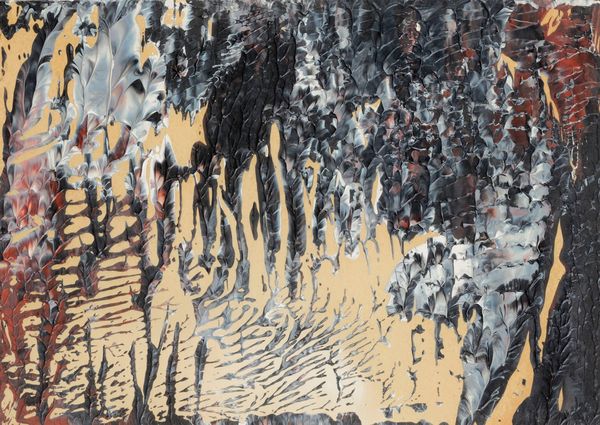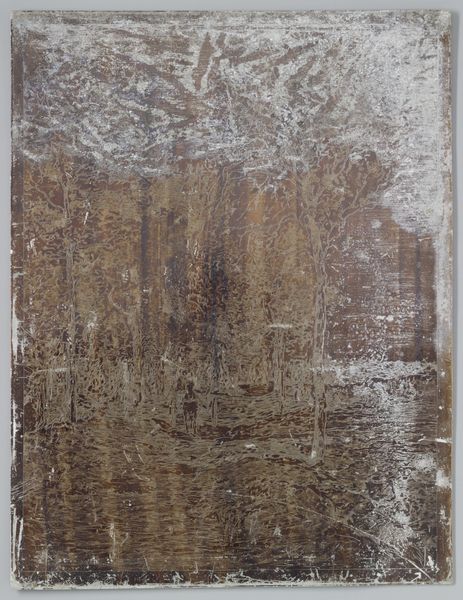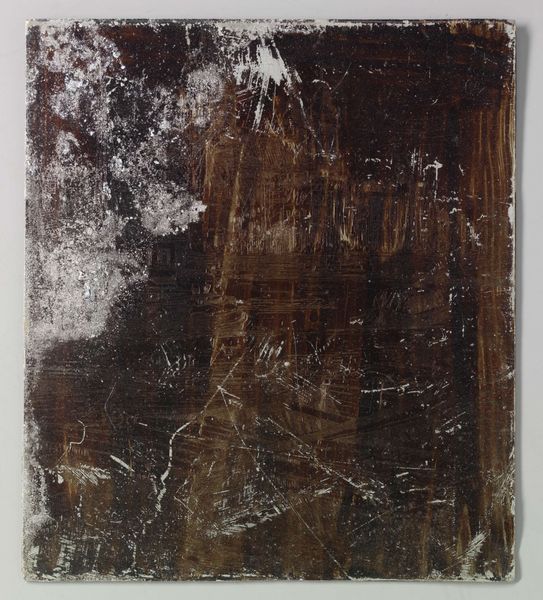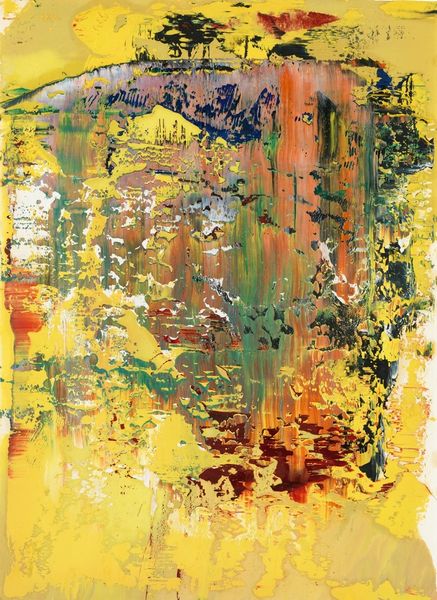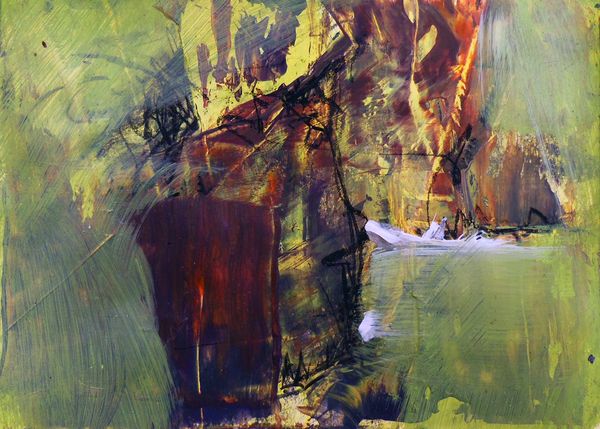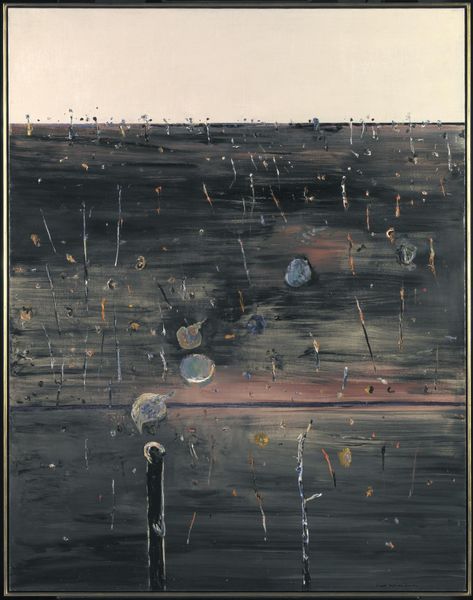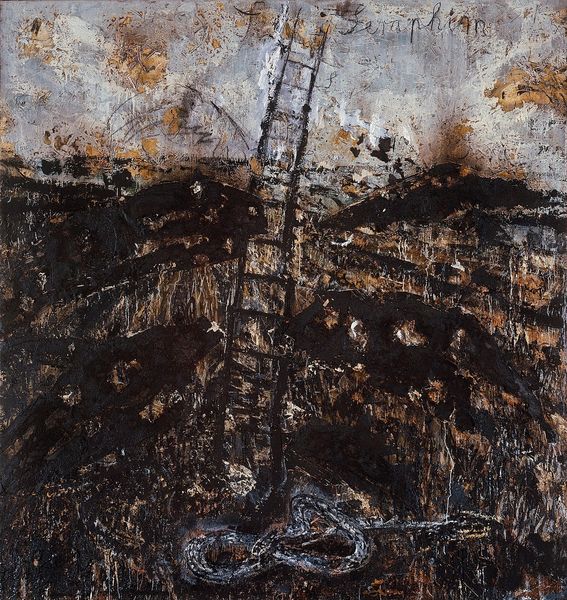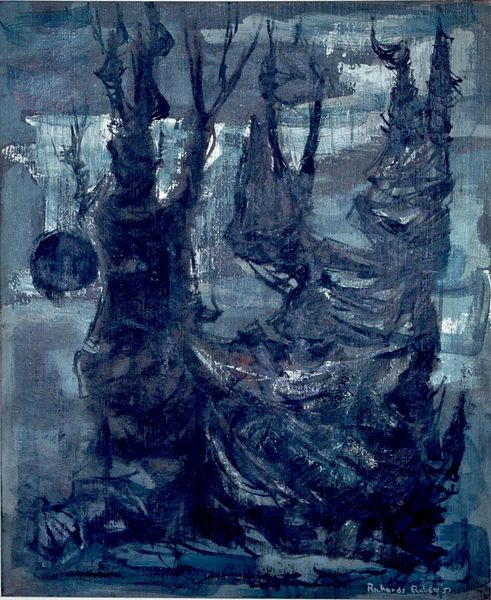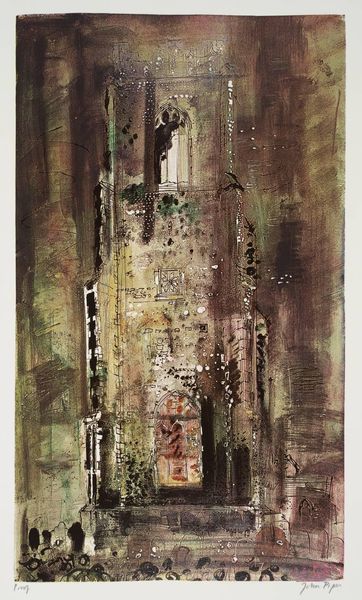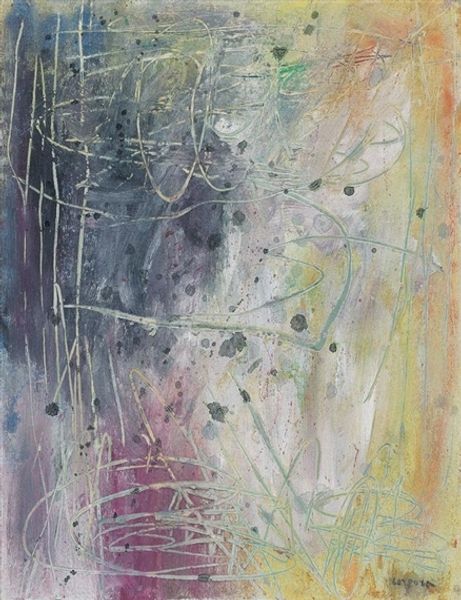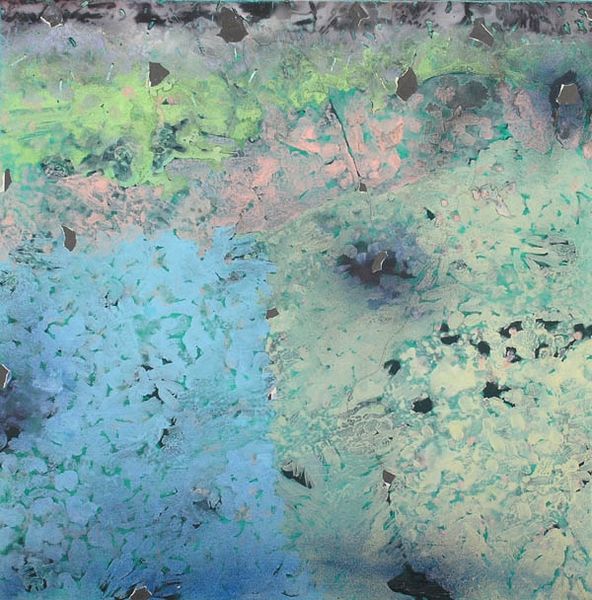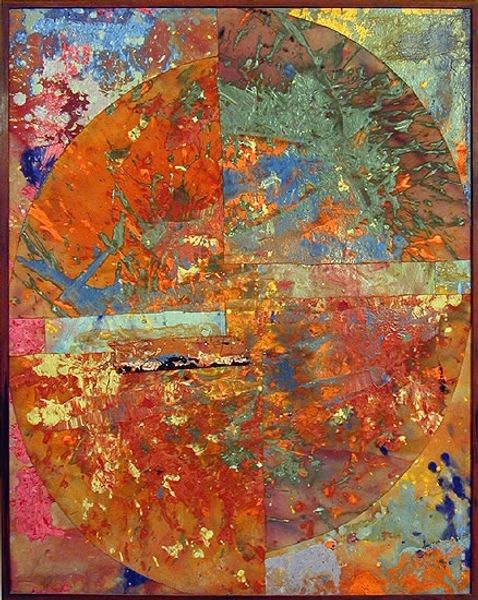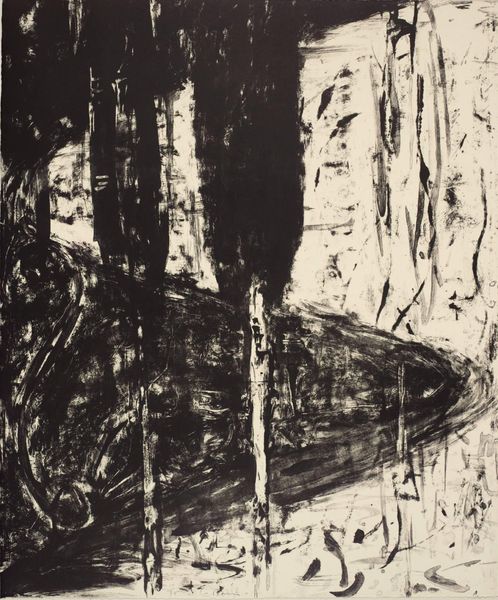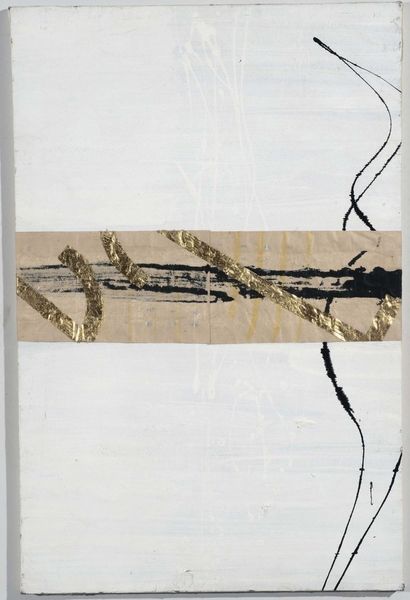
mixed-media, matter-painting, acrylic-paint, impasto
#
abstract-expressionism
#
abstract expressionism
#
mixed-media
#
matter-painting
#
acrylic-paint
#
impasto
#
acrylic on canvas
#
abstraction
#
modernism
Copyright: Christo Coetzee,Fair Use
Editor: So this is Christo Coetzee's "Black & White Division" from 1956. It's a mixed-media piece, with lots of texture—acrylic paint and impasto, creating these thick layers. I find it quite brooding, almost ominous with its stark contrast and heavy materiality. What historical dialogues do you think this piece opens up? Curator: It’s more than just a brooding landscape. Think about the title: "Black & White Division." In 1956, Coetzee, as a white South African artist, was working against the backdrop of intensifying apartheid. This division isn't merely aesthetic; it reflects the violently enforced social structures of the time. Editor: That's a perspective I hadn't considered. How does the abstraction play into this social commentary? Curator: The abstraction becomes a powerful tool. Instead of depicting specific scenes of racial injustice, Coetzee uses texture and color to evoke a feeling of unease and conflict. The heavy impasto almost feels like a physical manifestation of oppression. It begs the question: Can abstraction be a form of protest? How does an artist navigate oppressive realities through non-representational forms? Editor: So it's not just about the materials, but how they communicate these broader socio-political themes? Curator: Exactly. Consider also how "modernism" itself, as a Western art movement, was being appropriated and re-contextualized by artists from the Global South. Coetzee is engaging with an international dialogue, while simultaneously grappling with the specific realities of his own context. How does this complicate our understanding of modernism? Editor: I'm starting to see the layers here. It is an abstract painting, yes, but with so much more going on beneath the surface! Thanks. Curator: And thank you for opening this conversation up – it is a reminder that art is always intertwined with history, identity, and power.
Comments
No comments
Be the first to comment and join the conversation on the ultimate creative platform.
